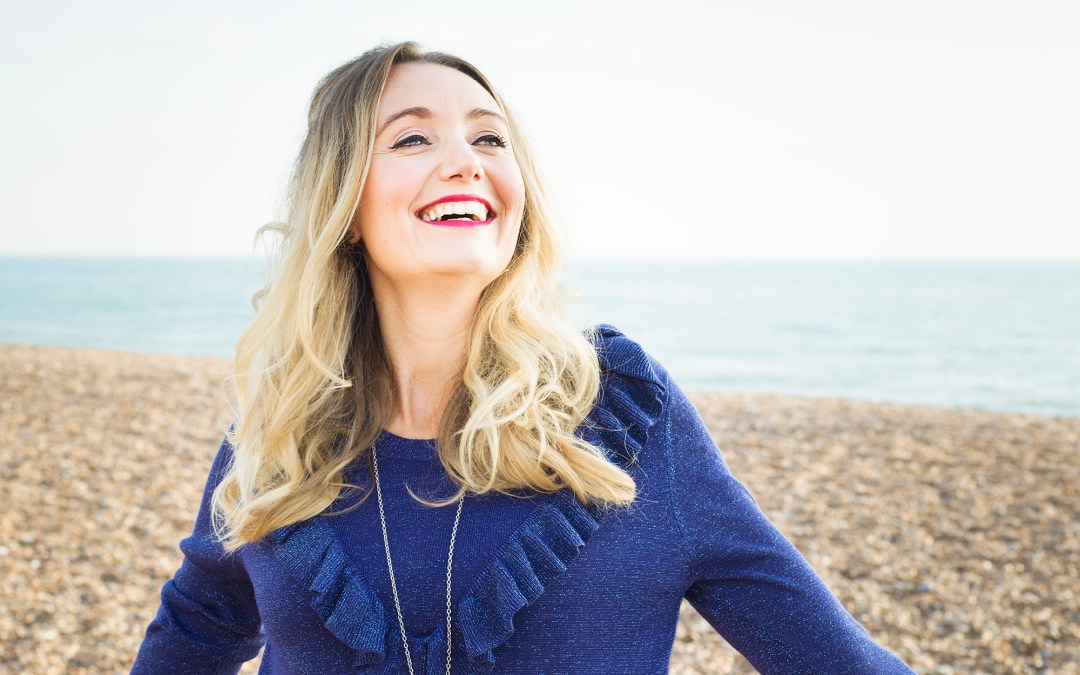Cerrie Burnell: creativity, diversity and motherhood
The CBeebies presenter and author speaks to Danielle Woodward about what happiness mean to her

Interview: Danielle Woodward
We should all give more value to creativity; it’s seen as something to do to unwind, but it’s a whole other world that’s available to us, and it’s vital to be exposed to it in childhood.
When a book you’ve written is adapted for the stage, it’s always different than you imagined. Snowflakes [at the Oxford Playhouse last year] was my third play and I’ve become better at stepping back and handing it over to the director. I also enjoy writing picture books, as they help hook a child into reading.
I love my work; writing is a chance to relive my childhood and create something new that encompasses everything I love about life now. Working with the CBeebies team is fantastic; we are like a family who are all supportive of each other.
Anything inappropriate makes me laugh! CBeebies is wholesome and educational, but I can’t be that sincere all day. We’ll be rehearsing for the bedtime hour and I’ll mention ‘gin’ as many times as I can on the read-through to lighten the mood!
I don’t think disabled children have to accept their disability; they just need to get on with their lives. When I was growing up, I had to get a prosthetic arm fitted, which I hated. The doctor told me I had to wear it because, if I didn’t, other kids might not like it. I remember laughing and saying, ‘Oh no, my friends don’t mind at all, they’re always telling me to take it off!’ That was his opinion; he didn’t like it if I didn’t wear my plastic arm. Dealing with attitudes like that at a young age made me resilient.
It pains me to ask for help. If you’re a young child and you ask for help and someone sees your disability and says, ‘yes, of course, you poor thing’, you get this awful misplaced sympathy. I refused help, and that made me feel invincible.
I didn’t class myself as having a disability until I was in my mid-20s when I worked for a theatre company. I thought it was a positive label, not a vulnerability. I am disabled in that I have one hand, but there isn’t anything I can’t do. It means differently abled, not less abled.
I aim for grace in all situations. I hold on to the image of a ballerina or a swan in my mind; dancing or swimming through the turmoil, but looking calm and composed on the surface.
I can’t stand it when children are treated unfairly, or their needs aren’t understood. If a child is having a meltdown in public, there’s an instant assumption that the parent should be controlling them, but you don’t know anything about that situation, so don’t judge.
You can never underestimate what a wonderful thing diversity within a community is. The bigger the mix, the better; it helps us understand each other. Compassion is so important.
I’m wary of smugness, especially on Facebook. People can be obsessed with having to document everything, but being in the moment is what’s important.
There are so many different types of family. I had my daughter, Amelie, on my own, and there were times when it was difficult, but I have friends who are part of supportive couples who found it equally hard – motherhood can be challenging whatever your circumstances.
I’ve got multiple diversities: I’m disabled, have a mixed-race daughter and I’m dyslexic, but being a single parent is the thing I’m most proud of. Juggling is the hardest part; fitting it all in with the school run, my writing, my role on CBeebies… having children is an extraordinary privilege and I feel incredibly lucky.
‘Harper And The Night Forest’ by Cerrie Burnell, illustrated by Laura Ellen Anderson (Scholastic, £5.99), is out now.
Photograph: Pal Hansen for Psychologies








